Bulk Video Processing Content Compliance Risks and Safely Guide
As short-form and long-form video content become key drivers for online engagement, tools that allow batch processing of video files - such as HitPaw Univd - are increasingly popular among content creators, marketers, and businesses. These tools can streamline editing, compression, format conversion, and other video-related tasks at scale.
However, convenience doesn't eliminate legal responsibilities. Whether you're an individual YouTuber or a corporate content team, using AI-powered video converters or batch editors brings compliance risks that must be considered carefully. This article explores the legal and ethical implications of bulk video processing, outlines the responsible use of tools like HitPaw Univd, and provides a roadmap to stay compliant with global copyright regulations.
Part 1: Core Legal Risks of Bulk Video Processing
1. Copyright Infringement at Scale
When you process multiple videos without verifying the ownership or license of each one, you risk committing copyright infringement across all files simultaneously. This is especially problematic when content is downloaded from platforms like YouTube, TikTok, or Instagram without proper authorization. Each unauthorized conversion, trimming, or redistribution could be viewed as a separate violation, exposing you or your business to takedown requests or even legal claims.
2. Violation of Licensing Terms
Not all licensed content is freely editable. Many stock libraries and paid sources include restrictions such as "no modification," "no commercial use," or mandatory attribution. Batch tools like HitPaw Univd can inadvertently strip out metadata or watermarks required by the license. If these terms are not reviewed beforehand, mass processing may turn legally acquired content into a source of liability.
3. Unintended Derivative Works
AI-driven features such as resolution upscaling, cropping, or background replacement may create what copyright law considers a "derivative work." If the original content is protected and you lack the right to create derivatives, even slight enhancements performed in bulk can place you in breach. What seems like a technical upgrade may have deeper legal consequences depending on the license.
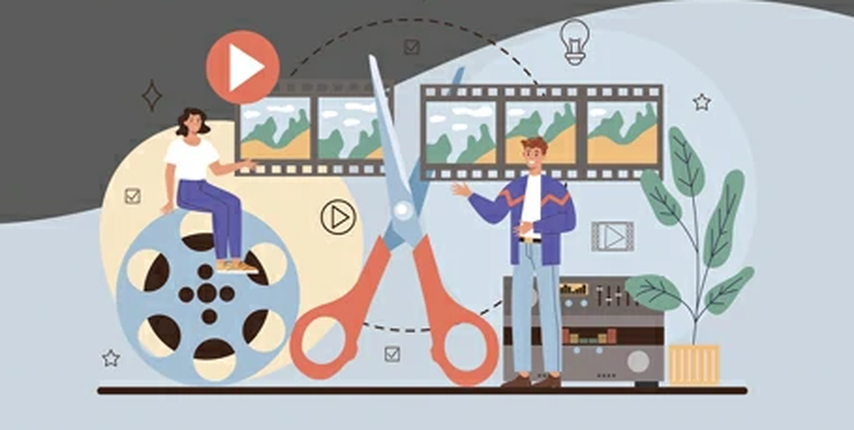
4. Loss of Attribution and Metadata
Bulk editing can result in removal or overwriting of embedded metadata, author credits, and license details. While these omissions might seem minor, they can violate licenses that specifically require visible credit or embedded identifiers. Stripped attribution may also create confusion about authorship and ownership - a reputational and legal risk for businesses and content creators alike.
5. Cross-Border Legal Exposure
If your content contains identifiable individuals, voice, or location data, you may fall under privacy and data protection regulations like the EU's GDPR or California's CCPA. Automated processing for commercial use without consent could lead to violations, even if the video was originally intended for educational or internal use. Bulk handling doesn't negate the need for individual content checks, especially for content with people in it.
Part 2: Legal Considerations for Businesses and Content Creators
1. Establishing Content Ownership
Before processing any video, you must confirm your legal right to do so. This includes verifying that you are the original creator, that the video was created under a work-for-hire agreement, or that you've secured authorized usage rights. For businesses, having a signed content release form from clients or collaborators is essential before performing batch edits or distributing the content commercially.

2. Understanding License Scope and Restrictions
Licenses vary widely, and so do their limitations. Some allow for minor edits but prohibit public redistribution. Others are limited to editorial use and cannot appear in promotional materials. Before initiating a bulk conversion, check if your intended use - especially across multiple platforms - aligns with the permissions granted by the license. Violating one license across a batch of content could escalate quickly into a broader legal issue.
3. Respecting Original Intent and Context
Modifying videos through batch tools can unintentionally alter their meaning. Cropping, adding overlays, or shortening runtime may shift a video's tone or message. This becomes problematic when content is repurposed beyond its original intent - for example, turning an educational video into part of a commercial campaign. Misusing someone's content in a new context without their consent may lead to legal action and reputational harm.
4. Adhering to Platform-Specific Policies
Different platforms (e.g., YouTube, Meta, LinkedIn) have their own terms of service and community standards regarding reuse and modification of content. Even if your edits seem legally compliant, automated systems like YouTube's Content ID may flag modified videos as duplicates or unauthorized copies. Understanding each platform's policy can help you avoid account penalties and content removal.
5. Preparing Internal Compliance Protocols
To protect your brand or business, establish an internal workflow for legal review before batch processing any video content. This should include a checklist to verify content source, license type, usage limitations, and attribution requirements. Keeping documentation for each piece of processed content helps in audits, takedown disputes, or internal risk assessments. A proactive compliance culture is the best defense against legal missteps.
Why Responsible Use Matters in Bulk Processing
Once you've ensured your source content is legally safe to use, the next step is implementing that content through tools like HitPaw Univd. However, even when you're dealing with authorized material, careless use of batch processing features can still lead to metadata loss, license violations, or accidental misrepresentation. That's why understanding both the tool's capabilities and its limitations is critical for maintaining compliance while scaling your video workflows.
Part 3: How to Use HitPaw Responsibly for Bulk Video Tasks
HitPaw Univd is a professional-grade video conversion and editing suite designed for creators, marketing teams, educators, and businesses who need to handle large volumes of video files efficiently. It's best known for its batch processing power, allowing users to convert, compress, or edit thousands of videos at once with minimal quality loss.
Unlike traditional converters that focus on single-file operations, Univd is optimized for speed, automation, and format versatility, making it a go-to solution for teams managing content across multiple platforms or channels.
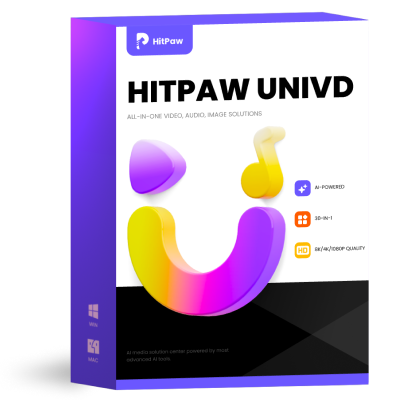
HitPaw Univd - All-in-one Video Solutions for Win & Mac
Secure Verified. 254,145 people have downloaded it.
- Batch Format Conversion: Convert video/audio to over 1000+ formats simultaneously, including MP4, MOV, MKV, AVI, and HEVC.
- Lossless Compression: Shrink file sizes while maintaining original quality - ideal for cloud storage or faster uploads.
- AI-Powered Enhancements: Automatically upscale resolution (up to 4K), denoise audio, remove backgrounds, and normalize sound quality.
- Subtitles and Watermarks: Add, edit, or remove subtitles and watermarks across multiple videos with unified settings.
- Hardware Acceleration: Utilizes GPU and CPU acceleration for faster batch processing on supported systems.
- Cross-Platform Support: Available on both Windows and macOS with user-friendly UI for professional and non-technical users alike.
Secure Verified. 254,145 people have downloaded it.
How to Use HitPaw Univd for Bulk Video Processing
Step 1: Import Files to Program
Launch Univd and drag-and-drop multiple video files into the Converter or Compressor interface. You can also use folder import to queue hundreds of clips at once.
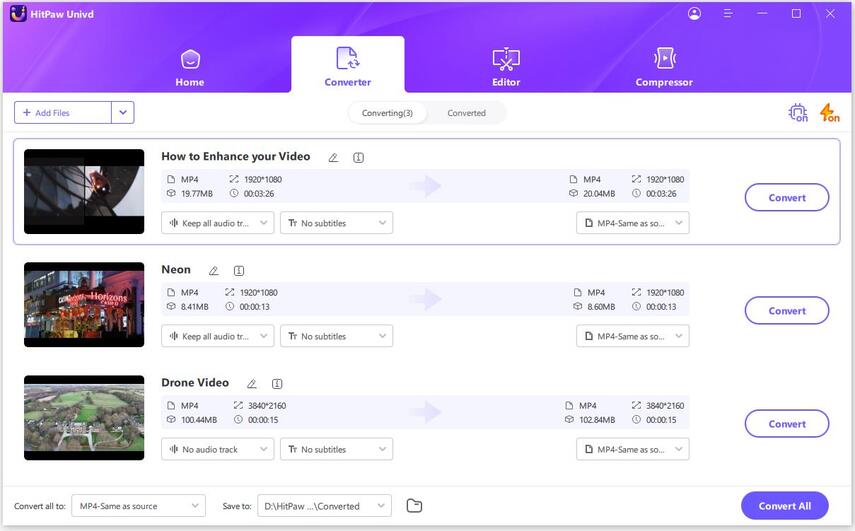
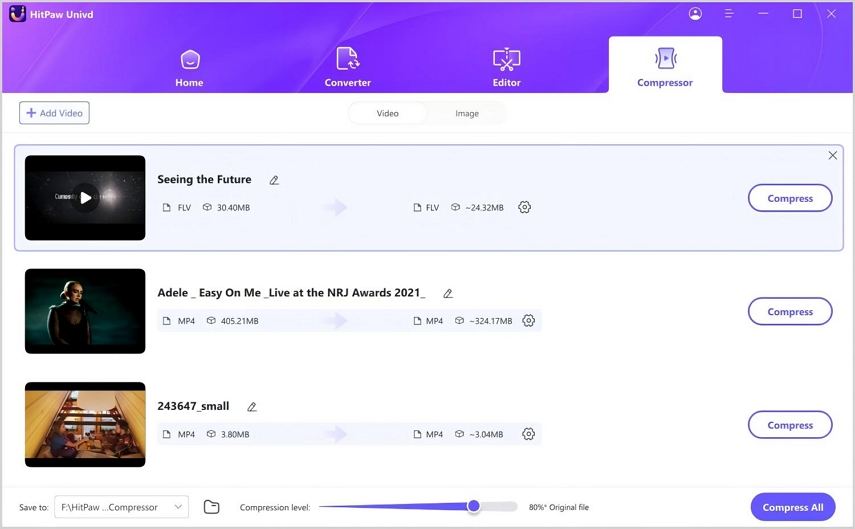
Step 2: Choose Output Format and Settings
Select the output format (e.g., MP4, WebM, ProRes) and customize resolution, bitrate, aspect ratio, or encoding preferences.
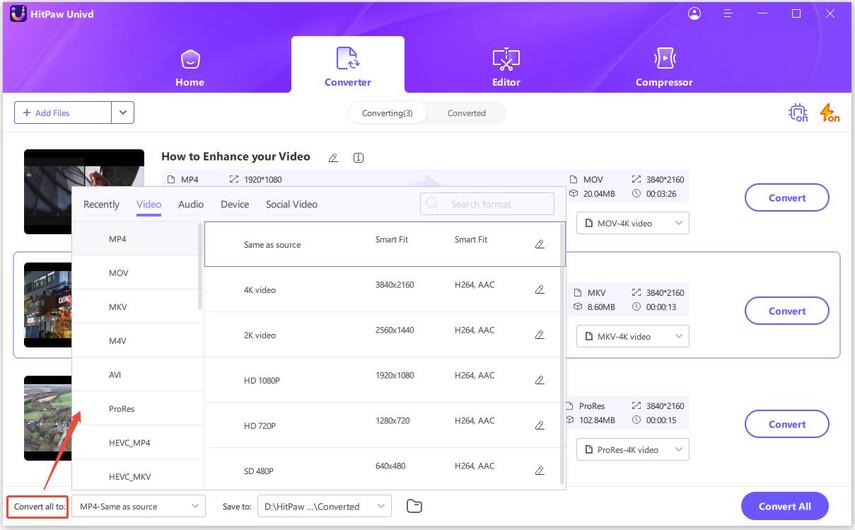
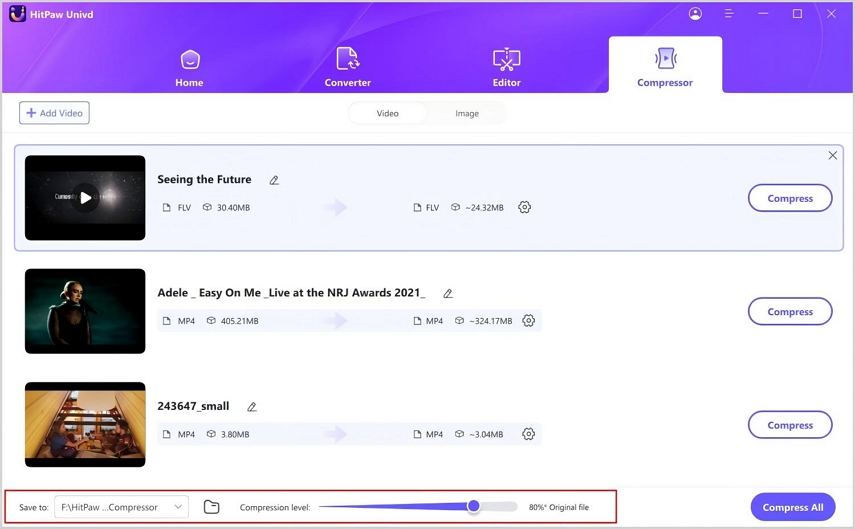
Step 3: Start Batch Processing
Click "Convert" or "Export" to begin processing all selected files. Progress bars and estimated time will be shown in real-time.
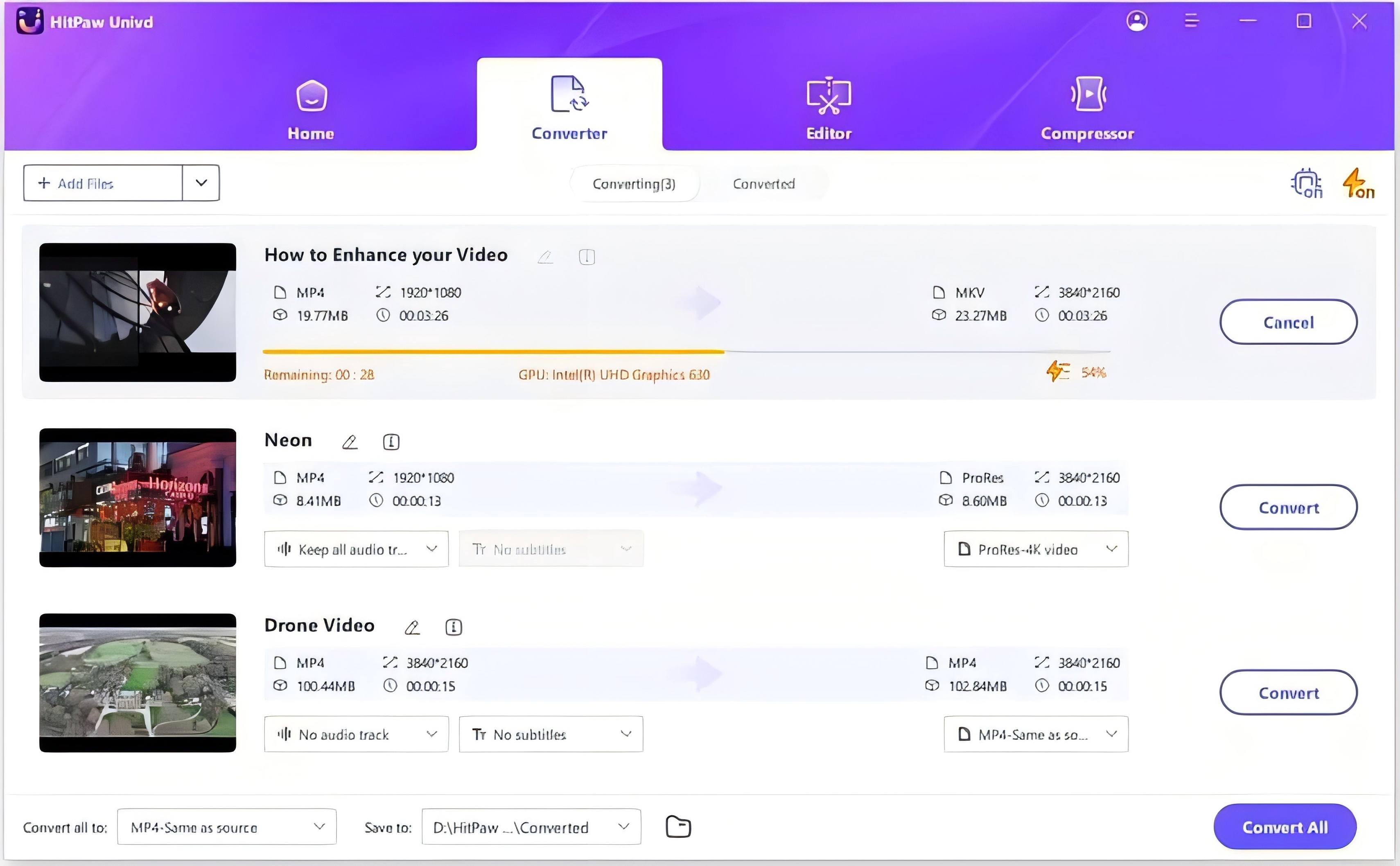
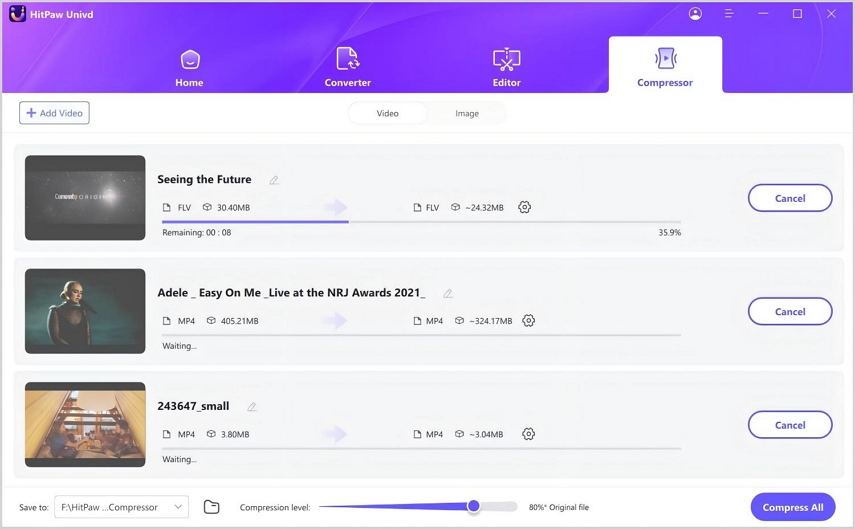
Step 4: Check and Review Results
After export, spot-check a few files to ensure format, audio, and visual elements meet expectations before uploading or distributing.
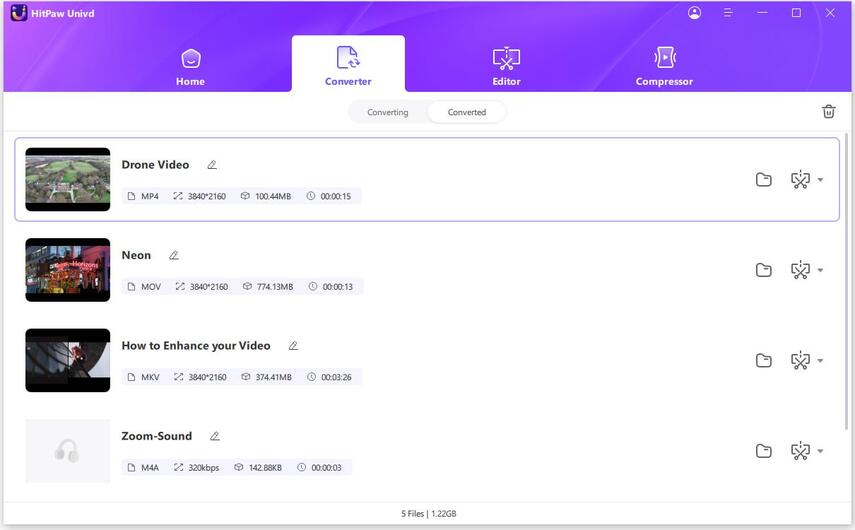
Step 5: Apply Universal Edits (Optional)
Use Univd's batch editing tools to trim videos, add branding watermarks, apply filters, or embed subtitles - with consistent settings applied to all selected files.
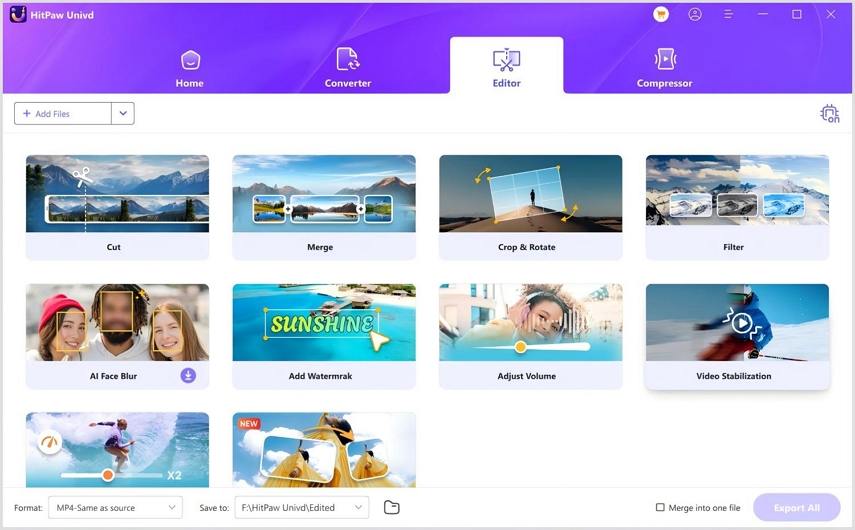
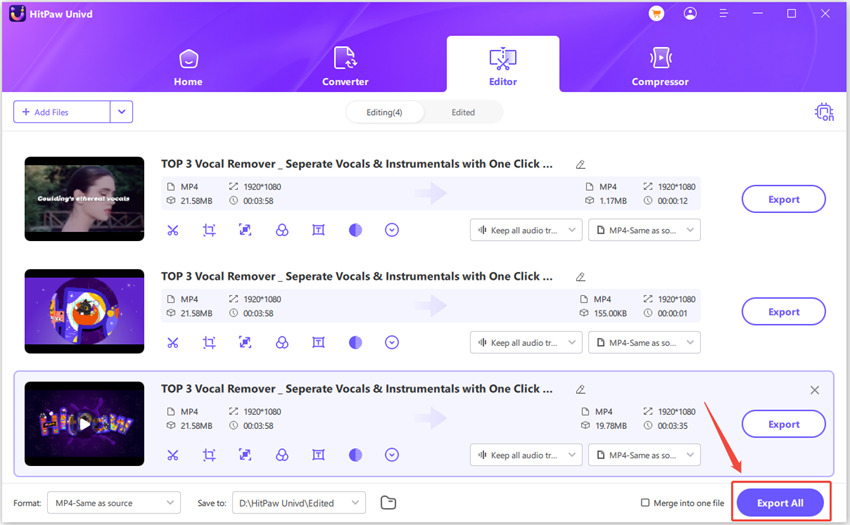
Legal and Compliance Best Practices When Using Univd
Even with advanced automation, you remain fully responsible for how the content is used post-processing. To avoid compliance pitfalls:
- Only Process Legally Acquired Content: Always verify that the video content was either created by your team, obtained with proper licensing, or falls under a clearly applicable fair-use policy.
- Avoid Unauthorized Watermark Removal: Univd's tools allow you to remove watermarks- but this should only be done on content you own or have permission to modify. Removing visible copyright claims can result in legal action.
- Retain Attribution and Metadata Where Required: Before batch exporting, confirm that licensing obligations (such as attribution) aren't stripped out by format conversion. If needed, reinsert credit lines manually or in the video's description on publishing platforms.
- Maintain Processing Records: Keep a log or spreadsheet that tracks which videos were processed, the source of each, any licenses attached, and what changes were made. This supports legal due diligence and helps resolve disputes.
- Train Content Teams on Legal Use: If multiple team members are using Umivd, ensure they understand which content is safe to process. Provide internal guidelines or a checklist based on your business's legal and publishing policies.
Bonus: Corporate Policy Tips for Teams Using AI Video Tools
Create Internal Review and Approval Processes
Before launching any batch video project, set up a clear internal workflow for content review. Whether you're a solo creator or part of a marketing team, someone should verify that all source videos are properly licensed and approved for editing. An internal approval step helps prevent accidental processing of copyrighted or restricted material.
Maintain Usage and Licensing Records
Keep track of where each video originated, what license it carries, and how it's been modified. A simple spreadsheet or digital asset management (DAM) system can log file sources, licensing terms, processing dates, and final usage. These records not only support transparency but also offer legal protection in case of disputes.
Educate Your Team on Video Compliance
If multiple users are handling content, provide training or a compliance checklist. Make sure your team knows which types of content are safe to process and what red flags to look for - such as missing attribution, third-party watermarks, or unclear usage rights. Empowering your team with this knowledge reduces legal risk at scale.
FAQ: Legal Questions About Bulk Video Processing
Q1. Can I use HitPaw Univd to convert or compress videos I downloaded from YouTube?
A1. Not without permission. YouTube's terms prohibit downloading and modifying videos unless the creator has granted clear authorization. Even if you don't monetize the video, processing and redistributing it can violate copyright and platform policies.
Q2. Is it legal to batch edit TikTok or Instagram clips for marketing purposes?
A2. Only if you created the content or obtained written permission from the original creator. Downloading and editing viral clips without proper rights - even for internal use - exposes you to copyright claims and reputational risk.
Q3. Is metadata stripping or format conversion considered a modification?
A3. Yes. From a legal standpoint, changing format, trimming duration, or removing subtitles can count as "modifying" the content. This may violate licenses that prohibit derivative works.
Conclusion
AI-powered batch video tools like HitPaw Univd bring efficiency and productivity gains for content creators and businesses. However, with great automation comes great legal responsibility. Before processing multiple videos, always ensure you have proper rights, understand how format changes might affect licensing terms, and implement a compliance workflow to safeguard your team and brand.








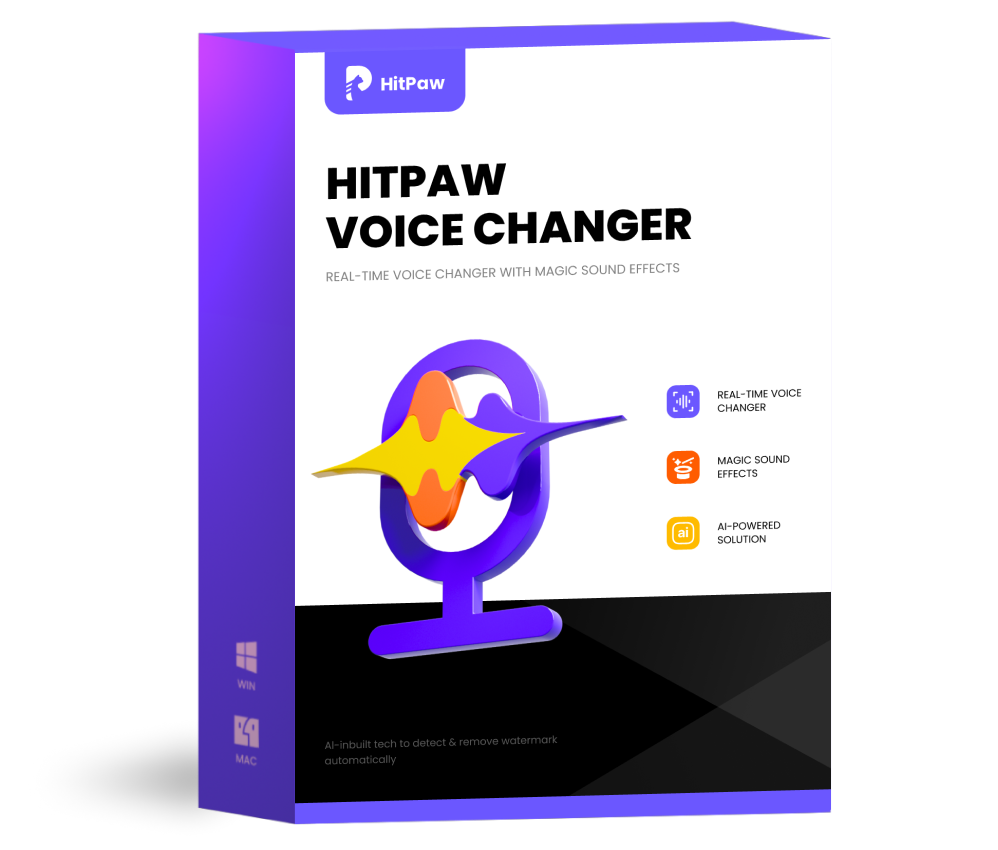 HitPaw VoicePea
HitPaw VoicePea  HitPaw VikPea (Video Enhancer)
HitPaw VikPea (Video Enhancer)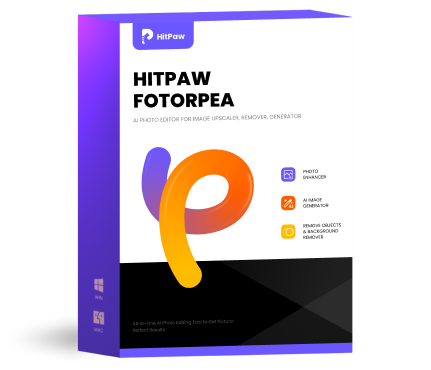 HitPaw FotorPea
HitPaw FotorPea
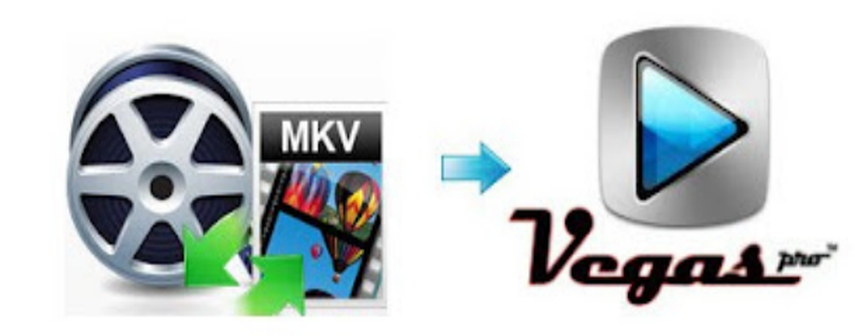
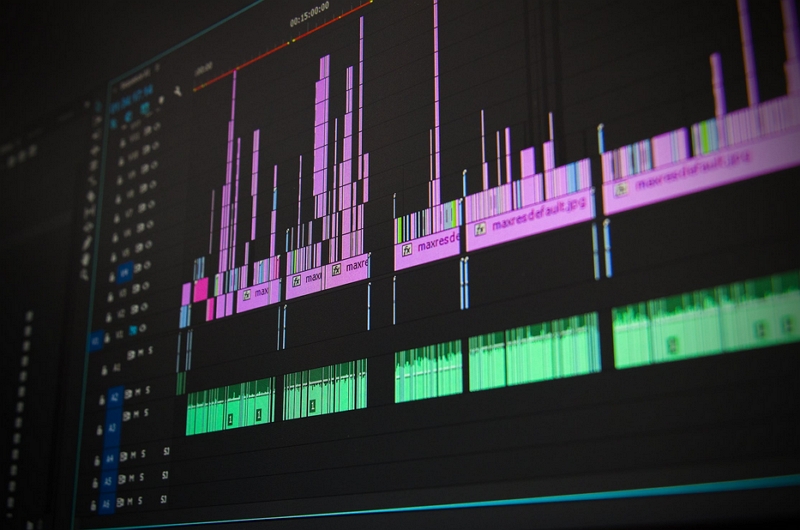

Share this article:
Select the product rating:
Daniel Walker
Editor-in-Chief
This post was written by Editor Daniel Walker whose passion lies in bridging the gap between cutting-edge technology and everyday creativity. The content he created inspires the audience to embrace digital tools confidently.
View all ArticlesLeave a Comment
Create your review for HitPaw articles